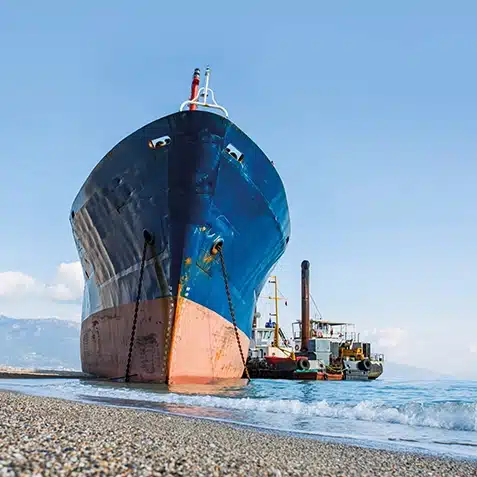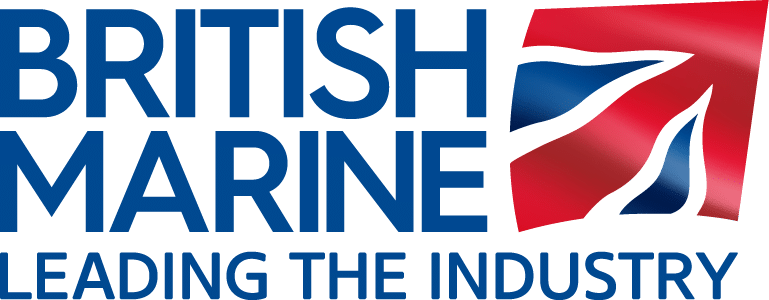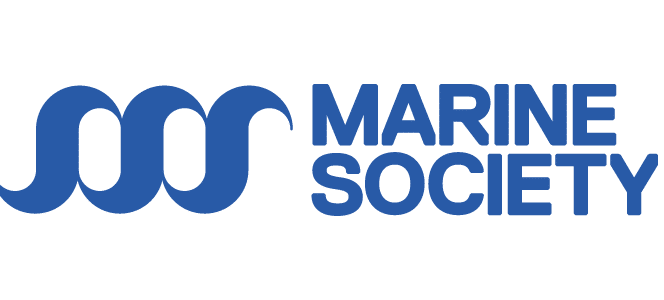Marine Insurance Claims Course
Diploma in Marine Insurance Claims
Marine Insurance Claims
MTA’s Marine Insurance Claims Diploma explores the complex world of marine insurance claims and develops the skills needed to manage hull, cargo, liability and Protection and Indemnity (P&I) cases.
Our globally recognised training course teaches you to handle all aspects of marine insurance claims professionally, from investigating losses and interpreting maritime law and policy, to preparing professional reports used by insurers, brokers and legal teams. This Maritime Insurance Adjuster training course is ideal for maritime industry professionals and legal support staff.
Study online from anywhere in the world and learn how shipping insurance losses are assessed, adjusted and resolved across the marine insurance industry.

Professional Marine Insurance Claims Qualification
Learn how to investigate losses, interpret insurance policies and manage complex marine claims across hull, cargo and liability cases.
Contact us below to enrol today, or speak with our experienced course advisors.

Duration:
12 - 18 months
Learn at your own pace
Online Course:
Study from anywhere

Cost:
Diploma: £3,195
Certificate: £2,295

Recognised by: 
Marine Insurance Claims Diploma vs Certification
Choose the right path for your career:
Comprehensive Training: In hull, cargo, liability, and Protection & Indemnity (P&I) claims, loss investigation, documentation and settlement procedures.
Flexible Study Duration: 12 – 18 month depending when you enrol to the program, study online at your own pace, from anywhere in the world.
Marine Industry Career Opportunities: 100% Online, with access to our student learning portal
Long-Term Career Impact: Marine Claims Adjuster, Insurance Risk Assessor, Loss Adjuster or P&I Claims Consultant.
Global Recognition: Our Diplomas are recognised by the University of Portsmouth and are supported by industry associations.
Assignments: One assignment is required to be completed and submitted at the end of each module, based on that particular subject.
Certification: you will receive a PDF Digital certificate (Printed Certificate Completion Pack available).
Final Examination: There will be a final examination upon completing and submitting all student assignments (exams are sat in April or October).
Post-Nominal letters: On passing the Diploma you can also use these letters after your name: MTA Dip MIC
Digital Course Badge: Upon successful completion students will receive an exclusive course badge for use on business cards, LinkedIn profiles and website(s)!
Diploma - £3,195
A globally recognised qualification for careers in marine insurance claims, risk assessment and loss adjusting across the global shipping and insurance sectors.
✔
✔
✔
✔
✔
✔
✔
✔
✔
✔
Certificate - £2,295
Specialist Marine Claims Training without formal assessments, for those who do not require a recognised international diploma.
✔
✔
✔
✔
✔
✔
✔
Marine Insurance Claims Curriculum: 10 Modules
Our specialist Maritime Insurance Claims Diploma covers hull damage, cargo loss, liability and salvage cases. Our marine claims adjustment training qualifies you to work with marine insurers, surveyors, underwriters and legal teams to achieve fair, evidence-based maritime claim resolutions.
1. Introduction to Marine Insurance
- Legal Side of Marine Insurance
- The Practical Side of Marine Insurance
- Proximate Cause
- Brief History of the development of Marine Insurance
2. Cargo Claims
- Background to Cargo Insurance
- The Open Policy
- Types of claims
- Deck cargo claims
- Calculating a claim
- Making a claim – Who and When
- The Enterprise Act 2016 – A “Reasonable Time” to Pay – What does that mean?
- Rules which apply to shipment of goods carried by sea
- Defences in the rules open to carriers
- Case studies
3. Hull and Machinery Claims
- Background to hull and machinery insurance
- Components of the policy
- Types of claims normally covered under the H&M policy
- Loss adjustments
- Practical aspects of making a claim
- Superyacht Claims
4. Legal Aspects Associated with a Marine Insurance Claims Handling
- The History of Marine Insurance Law
- Fundamentals of an insurance contract
- Consumer versus non-consumer
- IA 2015 and CIDRA 2012 – key concepts that have changed
- Warranties
- Fraud 26
- Proximity
- Total loss, constructive loss and partial loss
- Particular average
- General average and the York Antwerp rules
- Bringing a claim
- Disputes
5. Protection & Indemnity Claims
- Background to P&I insurance
- Components of the policy
- Types of claims covered
- Loss adjustments and claims handling
- Making and defending a claim
6. Quantification of a Claim
- Roles – Loss Adjuster or Surveyor
- Calculating the claim, types of claim, instruction and type of policy
- Standards – exposure to risk and liabilities
- Techniques and process
- Packing, cause and reporting
- Other types of survey
7. Small Yacht Claims
- The small yacht market
- Background to insurance offered & recent key changes
- Components of the policy
- Types of claims
8. Salvage Claims
- Introduction to seabourne trade
- World seabourne trade
- World casualty statistics
- The IMO and casualty recording
- Salvage principles
- International Convention on Salvage
- Salvage claims and salvage law
- Towage & salvage
- Maritime Law
- Wreck Law
- International Maritime Law
- Insurance considerations
- SCOPIC (Special compensation P&I club)
- Role of the special casualty representative
- Organisations involved in the salvage industry
- Notable salvage operations
9. Port, Boatyard or Marina Claims
- Types of boatyard or marina claims
- Boatyard operations
- Base marina operations
- Infrastructure & management of a marina or boatyard
- Risks & mitigations in a boatyard & marina
- Assessing how the boatyard or marina manages risk
- Handling the claim
- Marina & Boatyards around the world
10. Inspection Process
- Role of the marine surveyor
- Cause, nature and extent
- The investigation process
- Reporting
- Seaworthiness
- Case studies
Hear from our Students
Meet the Course Director
Jonathan Hadley-Piggin
BSc (Hons), MA, Dip Law, MNI, MRIN, ACI Arb, Solicitor
Jonathan Hadley-Piggin is a solicitor and partner in the marine and shipping department at Keystone Law a commercial law firm based in London. Jonathan attended Warsash Nautical College in Southampton sponsored by BP Shipping, where he gained a Class III Certificate of Competency (Deck Officer).
Following time at sea with BP (including during the Iran/Iraq war) he later gained a commission in the Royal Navy and attended Britannia Royal Navy College, then, sponsored by the Navy read for a degree in Maritime Law and Economics at Cardiff University. Jonathan trained at Stephenson Harwood in London, where following qualification he focused primarily on salvage and collision cases, before broadening his expertise to the large yacht world.

Course FAQs
Find out more about the course with our FAQs below.
How to become a marine claims adjuster?
Start by gaining a recognised qualification in marine insurance claims. Maritime Training Academy’s Marine Insurance diploma covers everything from loss investigation and policy interpretation to settlement procedures, preparing you for work with insurers, underwriters and legal teams.
What qualification will I receive from this marine insurance claims course?
You’ll earn a diploma in Marine Insurance Claims from the Maritime Training Academy, recognised internationally across the marine insurance and risk management sectors.
What types of claims are covered in marine insurance training?
The course includes training in hull damage, cargo loss, liability, salvage and Protection and Indemnity (P&I) claims, with real-world case examples.
How much does a marine claims adjuster earn?
Salaries vary based on experience and location, but qualified marine claims adjusters typically earn between £35,000 and £65,000, with higher earnings possible in specialist or international roles.
Can I take this course without a background in marine insurance?
Yes. The diploma is suitable for both newcomers and professionals from related fields such as shipping operations, law, surveying, or underwriting.
Is this course suitable for marine loss adjusters?
Absolutely. It provides structured training in claims documentation, valuation and resolution, ideal for those working in or transitioning into marine loss adjusting roles.
See our FAQ page for more questions answered about MTA courses.
Supported by:


Why Choose The Maritime Training Academy?

Flexible
Online learning allows you to study in your own time, at your own pace from anywhere in the world. This saves on travel and classroom costs and allows you to fit your studies around your job and progress your career.

Supportive
While the nature of distance learning is independent study, we recognise the importance of support. Students can contact us at any time during their course for assistance and our team of industry experts are always on hand for advice.

Expertise
We have over 50 industry experts writing, developing and advising on our course material. We truly believe that allowing students to tap into their expertise and knowledge is of the utmost importance to fulfil your dream career.
If you would prefer to complete this as a classroom-based course, please contact us.
